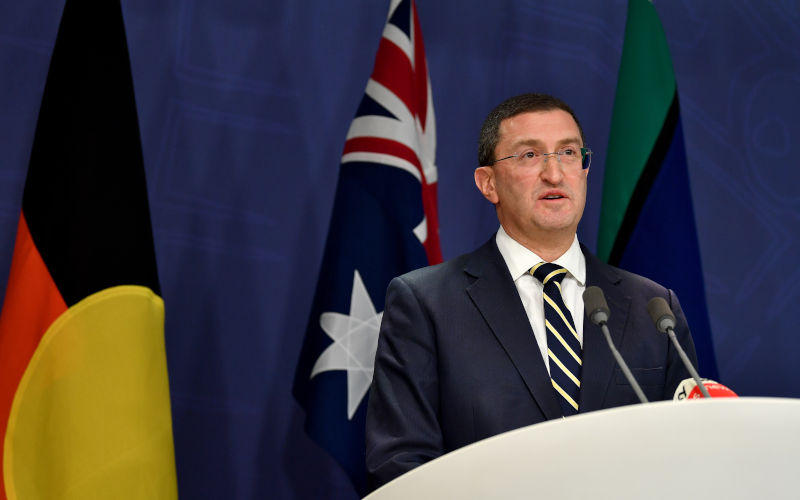An Indigenous Voice to Parliament: A moment whose time has come
April 12, 2023
I believe the time for the Voice has come. With those words from the Liberal MP Julian Leeser announcing his resignation as shadow minister for Indigenous Affairs, the path to a successful referendum on an Indigenous Voice to parliament just got a lot clearer, as did Peter Duttons dire miscalculation in opposing it.
Leeser is the third, and most senior, Liberal MP publicly to split from the partys position on the Voice, following Bridget Archer, and Andrew Bragg. We can expect others to follow - Simon Birmingham, Russell Broadbent and Richard Colbeck cant be too far away. While each of these rejections of the party line is a devastating blow for both Duttons position as leader and the waning anti-Voice campaign, far more significant is the resignation of Ken Wyatt, the first Indigenous minister for Indigenous Affairs, from the Liberal Party itself. Wyatts resignation is a statement of profound personal and political despair, reflective of the view that there is no return for the Liberals from their current policy and electoral abyss.
The Liberal Party is now splintering over its confused and unprincipled opposition to the Voice, a position without rationale. Dutton and his deputy Sussan Ley sounded more like a Dadaist tag-team than senior politicians embarking on a referendum campaign, as they valiantly tried to present their positive alternative to the powerful simplicity of the governments Voice proposal. There are many Yesses, Ley announced hopefully while struggling to articulate just one. It went something like this: we support a Voice, just not this one; we support Constitutional recognition, just not this way; and we support regional Voices, just not a national one made up of regional representatives. Oh, and the shadow cabinet must hold the party line, the backbench not so much.
Its an impossible message to sell, and thats assuming you could understand it in the first place. Behind this inept obfuscation lay the reality that, while the liberal party formally opposes the Voice, the party room is deeply divided. Its final position is more a patchwork of conflicted and contradictory points on which it could at least publicly agree, than a consistent clear statement of opposition.
It’s a longstanding political axiom that bipartisan support for a referendum is essential for its success, a necessary but not sufficient condition. All eight successful referenda have had that baseline bipartisan support, and all but one of them proposed by conservative parties. The most recent of which was in 1977 under the Fraser government, and quite a bit has changed since then. The advent of the Greens, the Teals and Independents in recent decades has dissipated the impact of a singular notion of bipartisanship as residing in the two major parties at the federal level, with state branches to varying degrees holding the same line.
Theres a real question whether that axiomatic requirement for bipartisan support at the federal level holds in this case, with the Liberal party splintering and its position against the Voice far from universally held within it. The Liberal Partys sole Premier, Tasmanian Jeremy Rockliff, will be vigorously campaigning in support of the Voice, as will the Western Australian Liberal leader Libby Mettam and that states Nationals leader Shane Love. Victorian Liberal leader John Pesutto has yet to announce his partys view and pointedly declined to support Duttons announcement.
What does bipartisan mean when one half of that political equation has been reduced to an electoral rump with limited political influence over its state branches, even its own party room, and declining political support at national and state levels? The old certainties about the nature and impact of bipartisanship and the path to referenda success no longer fit these new political realities. The Liberal Partys opposition to the Voice at the federal level is fractured internally and across the states, undercutting the requirement for bipartisan support.
Of greater significance may well be securing support across the state political parties, including state Liberal parties, and across a range of civil society. From sporting codes to industry leaders, unions and universities, religious groups, public institutions and individuals are already speaking out, writing about, and making public, their support for the Voice. Prime Minister Anthony Albanese has methodically and strategically worked to secure that broad community support and is well ahead of the Liberals vote no campaign before it has even begun.
The significance of these ruptures in the Liberal Party at every level, state and federal, will be denied and ignored at its political peril. As I wrote in these pages last week, the Liberal Party is broken and the refusal to acknowledge the depth of its current problems will only hasten its end as a political force, perhaps even as a political party.
In reprising the lazy politics of division and fear typical of the excesses of the Morrison government, Dutton has tied himself to a political past which the Australian electorate has resoundingly left behind and to which it does not want to return. For the Duttonite Liberals, secure only in their factional hold over the party, its as if the last five election defeats SA, federal, Victoria, NSW and, most spectacularly, the Aston by-election - never happened. There are no lessons to be learned, no self-reflection, and no changes to be made.
The Liberal Party is in crisis over the Voice, its Judas betrayal of our country in Noel Pearsons swingeing rebuke, the rejection of the long struggle for constitutional recognition and this historic gift of consultation and generosity from Indigenous peoples to the nation. Bereft of genuine reasoned argument for his cynical political position, Dutton has resorted to deceit and representations as Professor Marcia Langton described Duttons baseless claims against the Voice; I’m really astonished that a member of the Australian parliament would be so deceitful and propagate what is essentially a lie.
And yet he continues to propagate it: the Voice would divide the nation, its a Canberra voice full of academics and elites, it is not supported by the solicitor-generals legal advice, and it will disrupt our system of government. None of this is true and Duttons determination to spread falsehood and division at this historic opportunity for national unity is not worthy of a political leader. We are so much better than this.
For more on this topic, P&I recommends:
https://publish.pearlsandirritations.com/albanese-should-take-the-voice-to-the-people/

